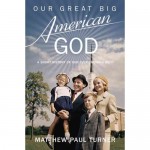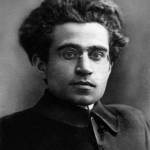Michael Horton has an upcoming book entitled Ordinary: Sustainable Faith in a Radical, Restless World. Based on the excerpts and previews that I’ve seen, this book deserves a great deal of attention and anticipation. Yesterday Tim Challies featured a passage from the book as a blog post, and I nearly came out of my chair in  agreement at this:
agreement at this:
In many ways, it’s more fun to be part of movements than churches. We can express our own individuality, pick our favorite leaders, and be swept off our feet at conferences. We can be anonymous. Yet this movement mentality keeps us restless and makes ordinary life in and submission to an actual church seem intolerably confining.
And terribly ordinary.
We need to recover not only sound doctrine, but sounder practices that serve to deepen us—and succeeding generations—in the new creation that God has called into being. We need to question not only false teaching, but false values, expectations, and habits that we have absorbed, taken for granted, and even adopted with a veneer of piety.
Ordinary seems to be a gentle pushback against one of the predominant evangelical trends of the last few years: The drive to be “radical” Christians who are all about their “war-time lifestyle.” Those two concepts become evangelical canon in the wake of David Platt’s Radical and John Piper’s Don’t Waste Your Life, respectively. Piper’s book released in 2003 and had a massive impact on evangelical conversation. Rapper Lecrae, whose newest album debuted #1 on the Billboard Top 200 a few weeks ago, wrote a song named after the book that has nearly 8 million views on YouTube.
Radical could be described as a practical response to the theology of Don’t Waste Your Life. If Piper’s book had a massive impact, David Platt’s book hit like a falling comet. Four years after its publication, Radical is still one of the top selling Christian books on the market. It’s subtitle, “Taking Back Your Faith From the American Dream,” has become an almost anthemic motif within many evangelical churches.
Yet some are wondering if the emphasis on “radical” and “war-time” Christian living is really the vision of following Christ that the Bible presents. Anthony Bradley has written of his concern about this “missional” movement, wondering if the thinking is well-intentioned but leads to an unbiblical loathing of a simple, God-honoring life:
What if youth and young adults were simply encouraged live in pursuit of wisdom, knowledge, understanding, education, wonder, beauty, glory, creativity, and worship in a world marred by sin… No shame, no pressure to be awesome, no expectations of fame but simply following the call to be men and women of virtue and inviting their friends and neighbors to do the same in every area of life.
Being a pastor’s kid, I’ve seen the (always unintentional) effects that a “do more, be more” theology can have on a church. I’ve watched as ministers and godly laypeople have anguished in self-loathing because their missional event or evangelism emphasis week was not as radical as they believed Jesus wanted. I’ve seen teens and twentysomethings slip through the cracks of church ministry, because their definition of living for God was going and being something, somewhere, that was impossible. In every case, Gospel spirituality was made synonymous with a certain lifestyle that seemed to run counter to American culture, but–as I suspect–might merely imitate American counter-culture.
Anyway, I want to applaud Michael Horton for this worthy conversation. I hope to say more about this after I’ve read his book, so stay tuned.
















